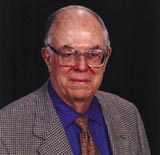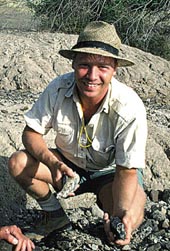|
This is an archived article.
For the latest news, go to the
Advance Homepage
For more archives, go to the Advance Archive/Search Page. | |||||
Harold Saunders to Speak on Attacking Roots
of Terrorism
His presentation is this year's Gerson Foreign Policy lecture. Saunders worked for 20 years at the center of U.S. policymaking toward the Middle East and South Asia. He served on the National Security Council in the White House under Presidents Kennedy, Johnson, Nixon, and Ford (1961-74), before being appointed assistant secretary of state for Near Eastern and South Asian affairs under President Carter (1978-81). He was a key member of the U.S. team that mediated five Arab-Israeli agreements (1974-79), including the Kissinger shuttle agreements, the Camp David Accords, and the Egyptian-Israeli peace treaty. He also helped negotiate the release of U.S. hostages from Tehran in 1981. Since leaving government in 1981, he has put his long experience with negotiation between competing groups into action, conceptualizing a framework he calls "sustained dialogue" for improving relationships that are strained along ethnic and racial lines. This work led to a book titled A Public Peace Process: Sustained Dialogue to Transform Racial and Ethnic Conflicts. Saunders is also founder and director of the International Institute for Sustained Dialogue. Saunders has published two other books based on his diplomatic experiences: The Other Walls: The Arab-Israeli Peace Process in a Global Perspective (Princeton University Press, 1991) and American Hostages in Iran: The Conduct of a Crisis (Yale University Press, 1985). Speaker to Examine Climate Change and Human
Evolution
His talk is part of the Teale Lecture Series on Nature and the Environment.
DeMenocal, an associate professor of earth and environmental sciences at Columbia University, studies the geochemistry and composition of marine sediments in order to reconstruct past changes in ocean circulation and earth's terrestrial climate. His research has led to advances in understanding human evolution. He has shown that as far back as five million years ago, when climate changed significantly, the ecosystem stress that resulted correlates with changes in species, including the physiology of hominids, the ancestors of humans. He also has demonstrated that during the past 12,000 years, earth's climate sometimes changed dramatically in as short a time as 80 years, and that when such severe climate changes occurred, some civilizations collapsed. His work has been funded by the National Science Foundation, NOAA, and the Office of Naval Research. |


